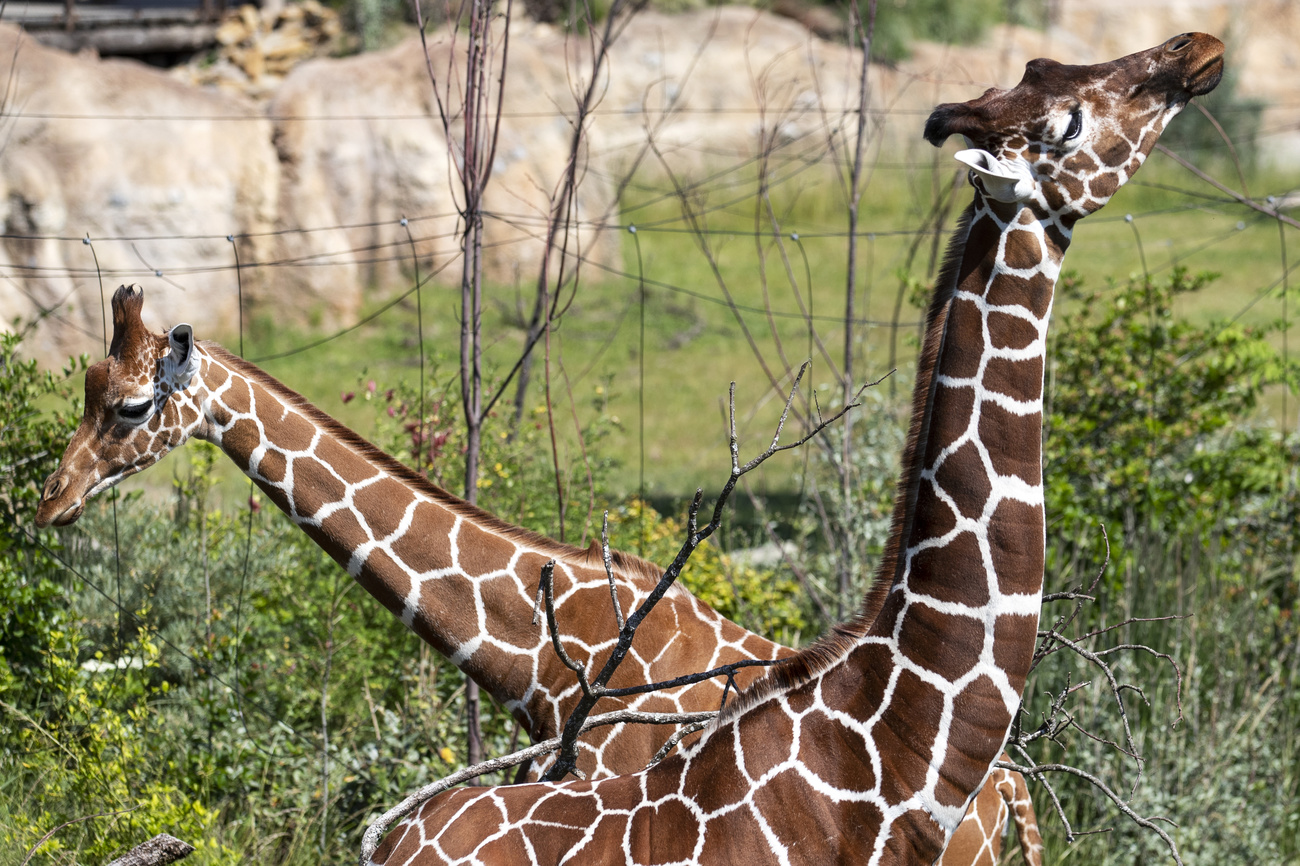
Scientists publish details of ‘head-butting’ giraffe species

A Swiss-Chinese research team has found new signs that giraffes developed their long necks not to reach high-lying food, but rather to boost their mating chances.
AnalysisExternal link of a 17-million-year-old giraffe-like fossil in the Xinjiang region of north-western China found that it had a “very specific adaptation of the head and neck”, which the researchers claim was specially equipped for “head-butting”.
The “markedly thick and tubular neck vertebrae”, and the “helmet-like headgear” of this Discokeryx xiezhi were designed for violent collisions, writesExternal link the Basel Natural History Museum – two of whose researchers were involved in the study led by the Chinese Academy of Sciences.
Specifically, males engaged in “necking”, a combat behaviour whereby they slam their necks into each other as a way of asserting (reproductive) dominance. “The ability of eating high in trees thanks to the long neck is likely to be a secondary benefit of the reproductive behaviour, and not the primary evolutionary force behind this characteristic,” the Natural History Museum writes.
Sex vs food
The study is not the first to claim that giraffes’ long necks came about due to mating criteria; others have since challengedExternal link the sexual selection theory, including with the argument that the necks of female giraffes are also long. Science magazine, which published the Swiss-Chinese research last week, writesExternal link that the jury is still out on “whether natural selection or sexual selection made the giraffe such an exotic looking beast”.

In compliance with the JTI standards
More: SWI swissinfo.ch certified by the Journalism Trust Initiative






























You can find an overview of ongoing debates with our journalists here . Please join us!
If you want to start a conversation about a topic raised in this article or want to report factual errors, email us at english@swissinfo.ch.